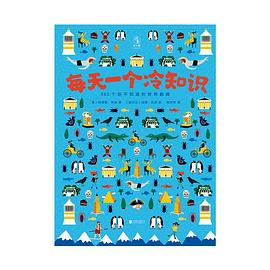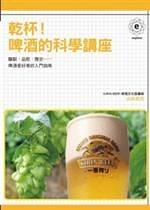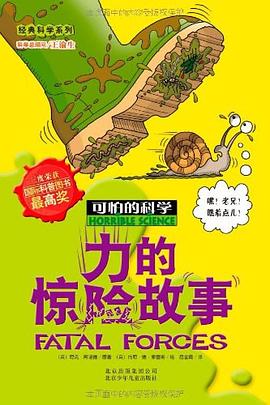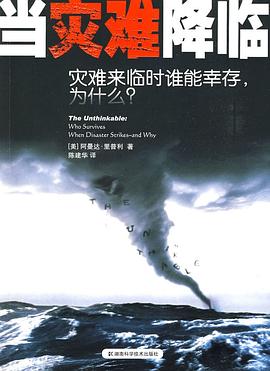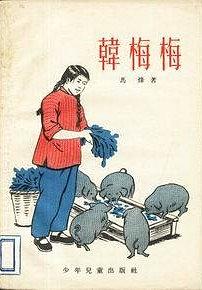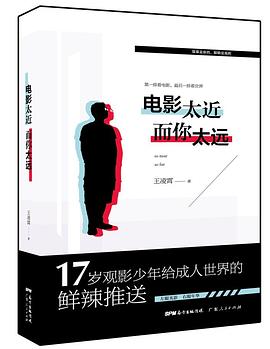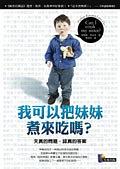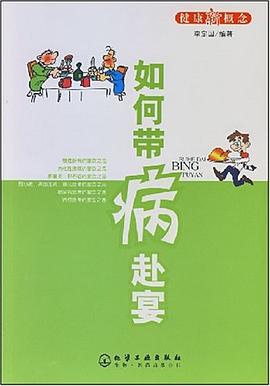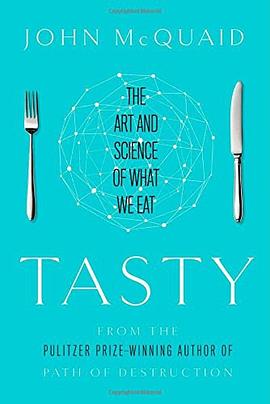

具体描述
A fascinating and deeply researched investigation into the mysteries of flavor—from the first bite taken by our ancestors to scientific advances in taste and the current "foodie" revolution.
Taste has long been considered the most basic of the five senses because its principal mission is a simple one: to discern food from everything else. Yet it's really the most complex and subtle. Taste is a whole-body experience, and breakthroughs in genetics and microbiology are casting light not just on the experience of french fries and foie gras, but the mysterious interplay of body and brain.
With reporting from kitchens, supermarkets, farms, restaurants, huge food corporations, and science labs, Tasty tells the story of the still-emerging concept of flavor and how our sense of taste will evolve in the coming decades. Tasty explains the scientific research taking place on multiple fronts: how genes shape our tastes; how hidden taste perceptions weave their way into every organ and system in the body; how the mind assembles flavors from the five senses and signals from body's metabolic systems; the quest to understand why sweetness tastes good and its dangerous addictive properties; why something disgusts one person and delights another; and what today's obsessions with extreme tastes tell us about the brain.
Brilliantly synthesizing science, ancient myth, philosophy, and literature, Tasty offers a delicious smorgasbord of where taste originated and where it's going—and why it changes by the day.
作者简介
John McQuaid has written about city-destroying super-termites, the slow collapse of fishing communities, hurricane levee engineering, mountaintop removal coal mining, and the global flower business for various publications, including Smithsonian magazine, The Washington Post, Wired, Forbes.com and EatingWell magazine. His work has won a Pulitzer Prize, as well as awards from the American Association for the Advancement of Science, the American Institute for Biological Sciences, and the International Association of Culinary Professionals. He lives in Silver Spring, Maryland, with his wife, son and daughter. The struggle to satisfy and understand the kids' strange and contradictory food choices (the elder liked super-hot peppers and limes, the younger rice, pasta and cheese) was the inspiration for his book Tasty.
目录信息
读后感
读《品尝的科学》的时候,刚好周末的家庭读书聚会,小学二年级的侄女看注音版的《老人与海》,而我们的人民教师菜菜在看叔本华。 读到兴起,我们互相交流,侄女问为什么老人说“我最喜欢罐装的啤酒”,啤酒好喝吗,为什么要喝啤酒了,侄女甚至表示也想尝尝。正好想起我手中这本...
评分每次端午节的时候,关于吃甜粽子还是咸粽子都会在微博上引起一阵“血雨腥风”,说实话,作为一个北方人,我真的无法理解肉粽的存在,类似的争论还有汤圆吃甜的还是吃咸的?豆腐脑吃甜的还是吃咸的?粽子吃甜的还是吃咸的?番茄炒蛋放糖还是放盐?所以到底是什么造成了人与人口...
评分我一贯非常爱看吃食类的书,远有唐鲁孙,中有蔡澜,近有殳俏,读他们的书如同开席,但我最喜欢汪曾祺老先生。汪老不专写吃,但信笔拈来,就是滋味。他的笔下曾写过一位在国子监当过差的祭酒老人,老人的说法儿是:“哪儿也比不了北京。北京的熬白菜也比别处好吃——五味神在北...
评分我一贯非常爱看吃食类的书,远有唐鲁孙,中有蔡澜,近有殳俏,读他们的书如同开席,但我最喜欢汪曾祺老先生。汪老不专写吃,但信笔拈来,就是滋味。他的笔下曾写过一位在国子监当过差的祭酒老人,老人的说法儿是:“哪儿也比不了北京。北京的熬白菜也比别处好吃——五味神在北...
评分每次端午节的时候,关于吃甜粽子还是咸粽子都会在微博上引起一阵“血雨腥风”,说实话,作为一个北方人,我真的无法理解肉粽的存在,类似的争论还有汤圆吃甜的还是吃咸的?豆腐脑吃甜的还是吃咸的?粽子吃甜的还是吃咸的?番茄炒蛋放糖还是放盐?所以到底是什么造成了人与人口...
用户评价
从我翻开这本书的第一页起,就被它营造出的那种温暖而亲切的氛围深深吸引了。作者的文字像一股清流,缓缓地注入心田,让我在忙碌的生活中找到了片刻的宁静。我尤其喜欢书中对于生活细节的描绘,那些寻常巷陌里的炊烟袅袅,那些餐桌上简单的家常菜,都仿佛拥有了生命,在我脑海中鲜活起来。每一个场景都充满了故事感,让我忍不住去想象,去感受,去沉浸其中。仿佛自己也置身于那个充满人间烟火气的空间,与书中的人物一起呼吸,一起品味生活的美好。作者的笔触细腻而富有感染力,她能够捕捉到那些最容易被我们忽略的,却又最能触动人心的瞬间。这些瞬间如同珍珠般散落在书页之间,串联起了整本书的灵魂。我常常会因为书中的某句话而停下来,反复品味,仿佛从中汲取到了某种力量。它不仅仅是一本书,更像是一位知心的朋友,在静静地诉说着关于生活、关于爱、关于成长的故事。我迫不及待地想和更多的人分享这种被治愈的感觉,希望这本书也能像它给我的那样,带给其他人温暖和力量。
评分我必须说,这本书带来的思考远超我的预期。我原本以为它会是一本轻松愉快的读物,但它却触及了我内心深处的一些柔软角落,引发了我对于生活本质的深刻反思。作者的叙事方式非常独特,她没有直接说教,而是通过一系列看似平常却意味深长的小故事,引导读者去体味人生的酸甜苦辣。我从中看到了坚韧,看到了失落,看到了希望,看到了成长。每一个故事都像一面镜子,折射出我生活中曾经经历过的种种,让我重新审视自己的选择,重新审视自己的得失。有时候,我会因为书中的某个情节而感到心痛,为角色的遭遇而落泪;有时候,我又会被他们的乐观与勇气所打动,重新拾起对生活的热情。这本书并没有给出标准答案,而是鼓励我去探索,去思考,去寻找属于自己的答案。它让我明白,生活并非总是如意,但即使身处困境,我们依然可以找到属于自己的那份光芒。这种开放式的叙述,反而更能激发读者的主动性,让每个人都能在其中找到属于自己的共鸣。
评分这本书最让我着迷的地方在于它所传递出的那种对生活的热爱与敬畏。作者仿佛是一位饱经世事的智者,用平和而充满智慧的语言,讲述着关于生命、关于成长、关于爱的点点滴滴。我被她对每一个微小事物的洞察力所折服,那些被我们习以为常,却又蕴含着无限深意的瞬间,在她的笔下焕发出了耀眼的光彩。我仿佛能看到阳光穿透树叶的缝隙,听到微风拂过脸颊的声音,感受到大地母亲温暖的怀抱。她教会我如何用一颗感恩的心去面对生活,如何从平凡中发现不凡,如何在顺境中保持谦逊,在逆境中寻找力量。这本书并非鼓吹某种极端的生活方式,而是倡导一种平和、从容、有温度的生活态度。它让我重新审视自己与世界的关系,重新思考生命的意义。我从中汲取到了很多能量,让我更加珍惜当下,更加积极地去拥抱生活。这本书就像一位良师益友,在我迷茫的时候给予指引,在我失落的时候给予安慰,在我懈怠的时候给予鞭策。
评分这本书给我带来的最深刻的感受,是一种对生活本真的回归。作者的文字朴实无华,却蕴含着深刻的哲理。她让我们看到,真正的幸福并非遥不可及,而是隐藏在生活的每一个平凡的瞬间。我被她对生活的热爱所打动,被她对人生的态度所感染。她教会我如何用一颗感恩的心去面对生活,如何从平凡中发现不凡。我从中汲取了力量,也获得了启发,让我更加积极地去拥抱生活,更加珍惜生命中的每一刻。这本书就像一位智者,用最真诚的语言与我交流,引导我重新审视自己的生活,找到属于自己的幸福。
评分这本书的叙事结构非常巧妙,它以一种非常流畅的方式将不同的主题巧妙地串联起来,形成了一个完整而引人入胜的故事。我很难用单一的词语来概括它的内容,因为它包含了太多层次的意义。它既有对人际关系的深刻探讨,也有对个人成长的细腻描绘,更有对生命哲学的独到见解。作者的文字风格多变,时而细腻婉约,时而奔放洒脱,但始终保持着一种真挚的情感。我尤其喜欢她在描写人物内心活动时所展现出的那种洞察力,仿佛能看穿角色的灵魂,将他们最真实的情感和思绪呈现在读者面前。每一个角色都栩栩如生,他们有优点也有缺点,有成功也有失败,这些都让他们显得更加真实可信。我常常在阅读的过程中,将自己代入到某个角色中,去感受他们的喜怒哀乐,去体会他们的挣扎与成长。这本书让我看到了人性的复杂与美好,也让我对生活有了更深刻的理解。它不仅仅是一本书,更像是一次心灵的旅行,让我看到了更广阔的世界,也让我更加了解了自己。
评分读这本书的过程,简直就像一场味蕾与心灵的双重盛宴。作者的文字功底毋庸置疑,她对食材的理解,对烹饪技巧的描述,都透着一股专业与热爱。但更让我惊艳的是,她将这些硬核的烹饪知识,巧妙地融入到了充满人情味的故事里。我不是一个烹饪爱好者,甚至可以说是个厨房小白,但这本书却让我对烹饪产生了前所未有的兴趣。那些关于食材的选取,关于火候的把握,关于调味的比例,都被作者写得如此生动形象,仿佛我能隔着书页闻到那诱人的香气,听到那滋滋作响的声音。更重要的是,她不仅仅是在教我怎么做菜,更是在传达一种关于“吃”的生活哲学。它教会我如何尊重每一份食材,如何用爱去烹饪,如何通过食物去连接人与人之间的情感。我甚至开始尝试着按照书中的一些简单食谱去实践,虽然过程有些手忙脚乱,但当最终端出那道菜时,那种成就感和幸福感是无法用言语来形容的。这本书让我明白,烹饪不只是一种技能,更是一种表达爱的方式,一种与世界沟通的语言。
评分这本书最让我印象深刻的是作者对情绪的细腻捕捉与描绘。她能够以一种非常自然且富有感染力的方式,将人物内心的复杂情感呈现在读者面前。我常常会在阅读的过程中,随着角色的情绪起伏而波动,时而欣喜,时而忧伤,时而愤怒,时而释然。作者的文字就像一把钥匙,打开了我们内心深处尘封的情感。她让我们看到了,在看似平静的生活表面下,隐藏着多么汹涌的暗流。我从中学会了如何更好地理解自己,如何更好地理解他人。它让我明白,每个人都有自己的故事,都有自己的难处,我们应该用更多的理解和包容去对待彼此。这本书就像一位经验丰富的心理咨询师,用最真诚的态度引导我认识自己,接纳自己,然后更好地前行。
评分我必须强调,这本书带给我的思考是持续而深远的。它不仅仅是一次阅读体验,更像是一场心灵的洗礼。作者的文字带着一种独特的穿透力,能够直抵人内心最柔软的角落。我被她对生活的热情所感染,被她对生命的态度所打动。她用一种非常平和且充满智慧的方式,讲述着关于爱、关于失去、关于希望的故事。我常常会在阅读的过程中,找到共鸣,然后开始反思自己的生活,审视自己的选择。每一个故事都像一面镜子,照出了我内心的挣扎与成长。这本书并没有提供现成的答案,而是鼓励我去独立思考,去探索属于自己的意义。它让我明白了,生活并非一成不变,而是充满了无限的可能性。我从中汲取了力量,也获得了启发,让我更加积极地去面对生活中的挑战,更加珍惜生命中的每一刻。
评分这本书带给我的惊喜,在于它能够以一种如此轻松愉悦的方式,触及到一些我们生活中最重要,却又最容易被我们忽略的议题。作者的叙述方式非常生动有趣,她巧妙地运用了各种修辞手法,让原本可能枯燥的内容变得引人入胜。我被她对生活细节的观察力所深深吸引,那些我们每天都在经历,却从未真正去思考的瞬间,在她的笔下焕发出了别样的光彩。她鼓励我去重新审视自己的生活方式,去发现那些被隐藏的美好,去拥抱那些生命中的小确幸。我常常会因为书中的某个观点而陷入沉思,然后开始在自己的生活中去实践,去验证。这种互动性的阅读体验,让我感觉自己不再是被动的接受者,而是积极的参与者。这本书让我明白,生活并非遥不可及的远方,而是就在我们身边,就在每一个细微之处。它像一位循循善诱的老师,用最温和的方式引导我去探索,去发现,去成长。
评分从我翻开这本书的那一刻起,就被它营造出的那种浓郁的氛围深深吸引了。作者的文字仿佛带着一种魔力,能够将读者轻易地带入到那个充满故事的世界里。我喜欢她对细节的刻画,那些看似微不足道的小物件,在她的笔下却成了承载着丰富情感的载体。每一个场景都充满了画面感,让我忍不住去想象,去感受,去沉浸其中。仿佛我不仅仅是在阅读,更是在亲身经历。书中的人物也塑造得非常立体,他们有血有肉,有爱有恨,他们的命运牵动着我的心。我常常在阅读的过程中,为他们的遭遇而担忧,为他们的成功而欢呼。这本书带给我的不仅仅是阅读的乐趣,更是一种情感的共鸣,一种精神的慰藉。
评分初看标题以为总归会虐心虐胃 实则更多是从神经科学/心理学/社会学角度讲述人类饮食习惯与口味喜好的演变 里面的科学小故事都很有趣哇!
评分初看标题以为总归会虐心虐胃 实则更多是从神经科学/心理学/社会学角度讲述人类饮食习惯与口味喜好的演变 里面的科学小故事都很有趣哇!
评分初看标题以为总归会虐心虐胃 实则更多是从神经科学/心理学/社会学角度讲述人类饮食习惯与口味喜好的演变 里面的科学小故事都很有趣哇!
评分初看标题以为总归会虐心虐胃 实则更多是从神经科学/心理学/社会学角度讲述人类饮食习惯与口味喜好的演变 里面的科学小故事都很有趣哇!
评分初看标题以为总归会虐心虐胃 实则更多是从神经科学/心理学/社会学角度讲述人类饮食习惯与口味喜好的演变 里面的科学小故事都很有趣哇!
相关图书
本站所有内容均为互联网搜索引擎提供的公开搜索信息,本站不存储任何数据与内容,任何内容与数据均与本站无关,如有需要请联系相关搜索引擎包括但不限于百度,google,bing,sogou 等
© 2026 book.wenda123.org All Rights Reserved. 图书目录大全 版权所有



